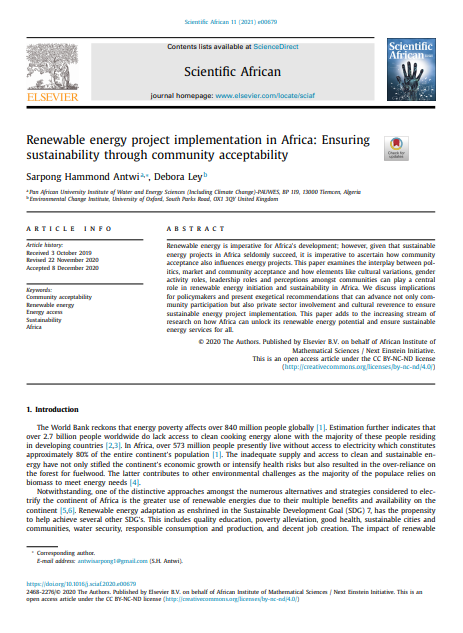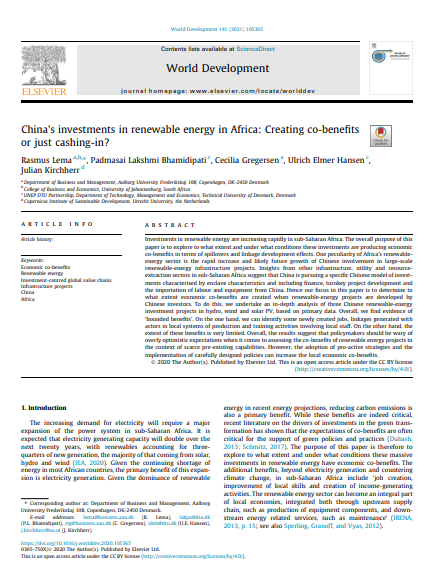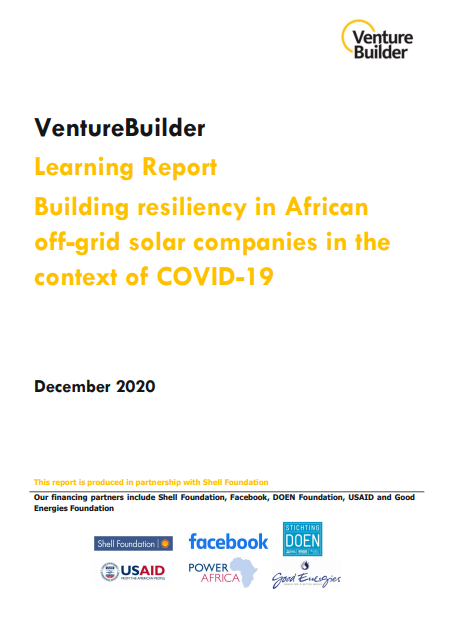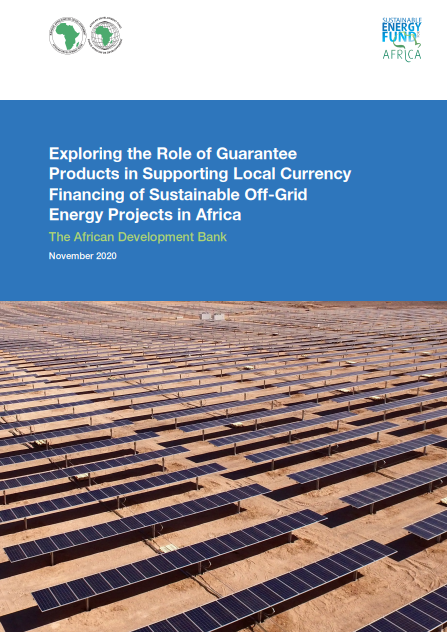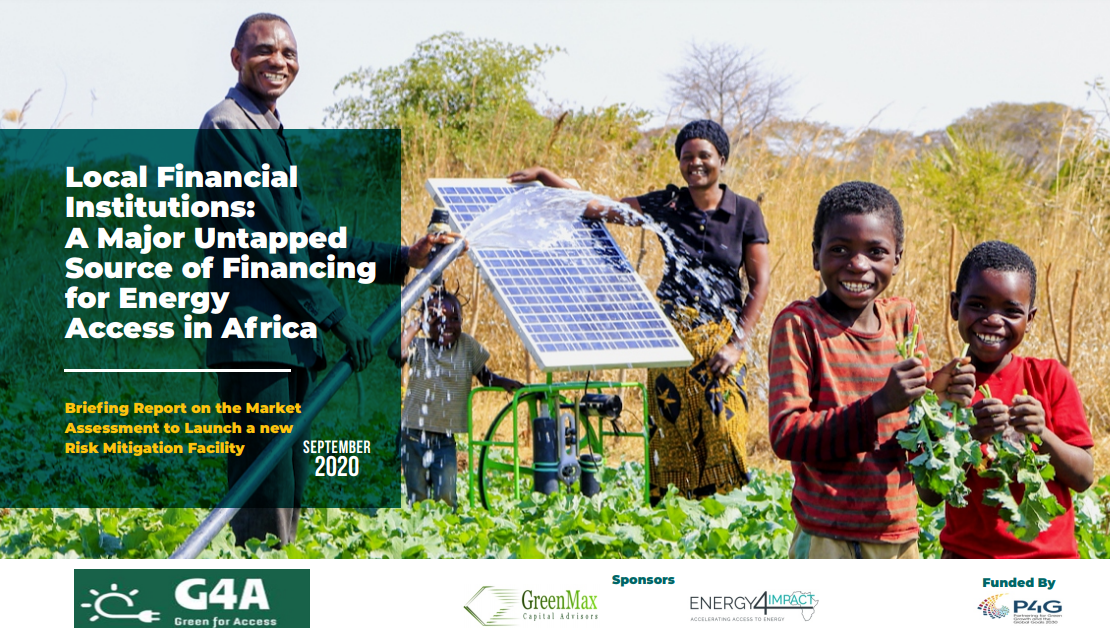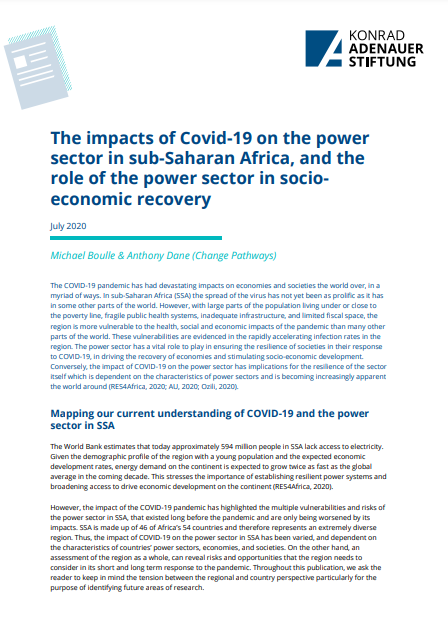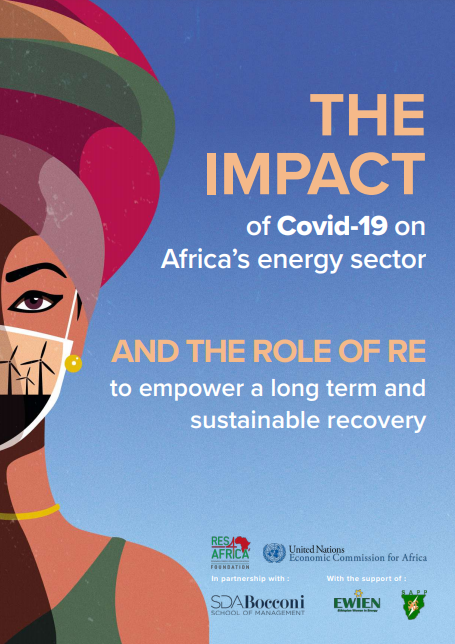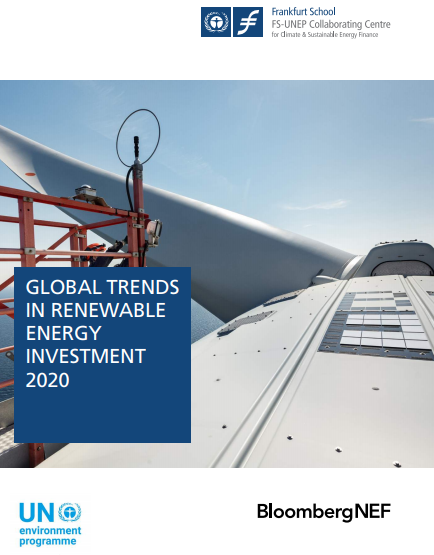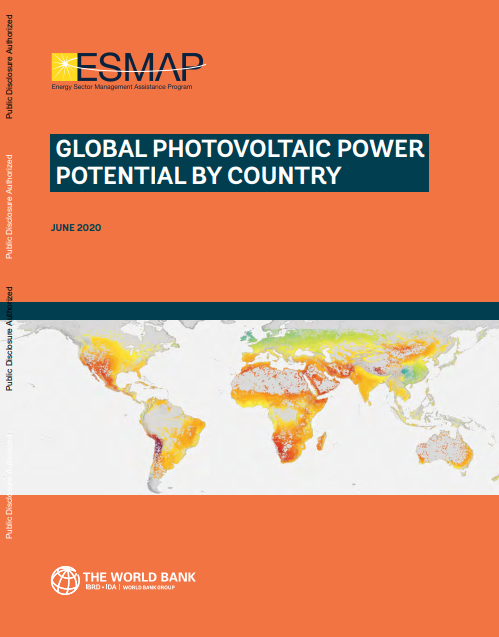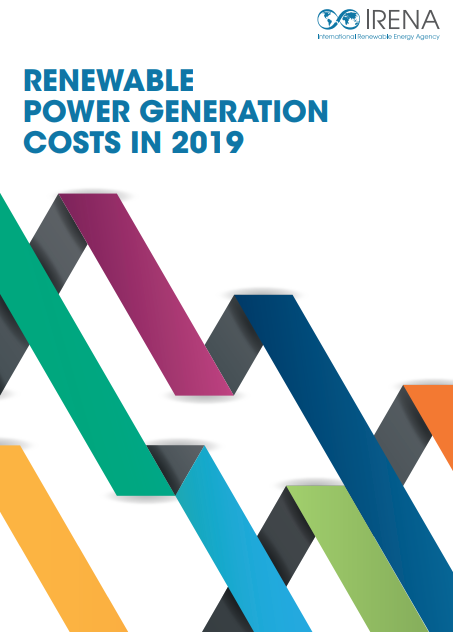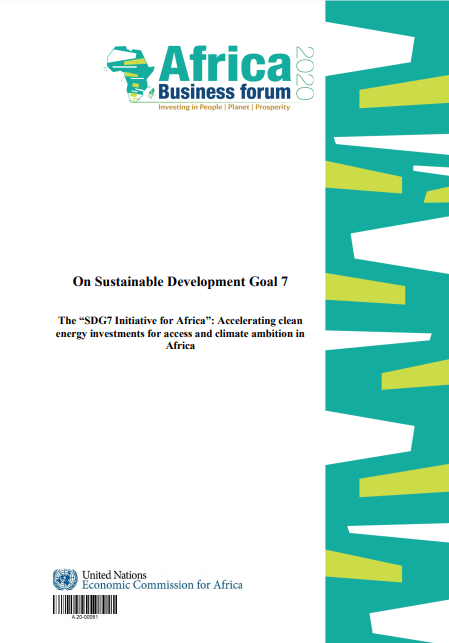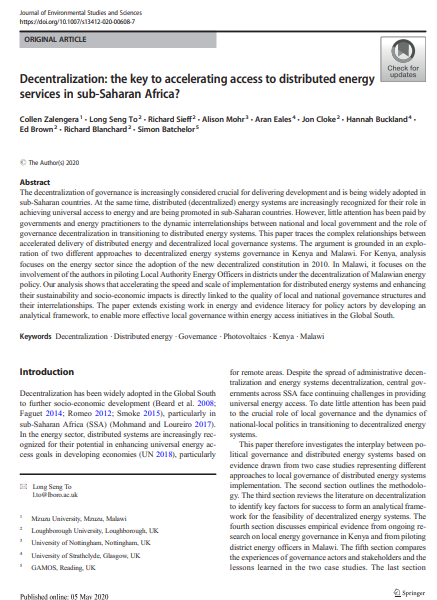Publication date: July 2020
Author: World Resources Institute
Description: In this decade of action for delivering the Sustainable Development Goals (SDGs), the ability of African governments to meet ambitious goals in poverty reduction, health care delivery, education, and other services that depend on access to electricity will be severely compromised if adequate action is not taken to ensure that affordable and reliable supplies of electricity are available to power critical development services. Electricity service delivery, in turn, requires sustained demand from development sectors to thrive. Despite these interdependencies, electricity and development sector goals in Africa are largely pursued in isolation from one another. Emerging interest in “nexus issues” on both local and global levels, the growing acceptance of decentralized energy technologies for electricity access, increasing domestic finance and the ongoing data revolution, among others, are creating new and exciting opportunities for us to better link energy and development efforts. This paper proposes a framework that energy and development sector actors, specifically, African governments, the donor community, private sector, and civil society can rally around to collectively shape a linked energy and development agenda to facilitate the attainment of the SDGs. A supportive ecosystem for a linked agenda will require global ambition and engagement, evidence building on local levels, policy and institutional alignment on national levels, and the restructuring of development finance.
Download Report >>
Visit Website >>





